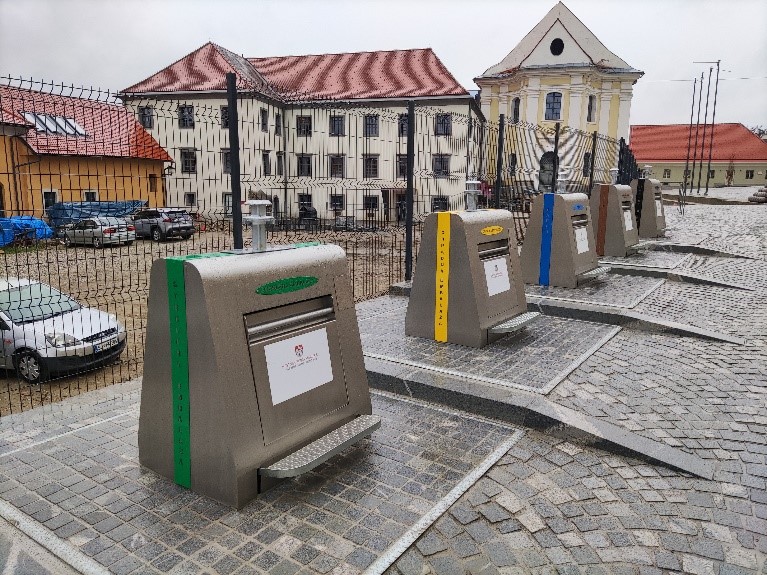
The WINPOL effect on Snaga
While there are just a couple of weeks left before the official end of WINPOL, partners are sharing their feedback on the project.
In recent years, technology and innovation have reached the field of waste. They offer an excellent opportunity to improve policies aiming to minimise waste generation and reach resource efficiency. However, the degree of introduction of innovative equipment and practices varies significantly from one territory to another.
This is why the WINPOL project was launched. Its aim? Improving policies for waste management so that they increasingly foster and promote the use of intelligent equipment and planning derived of it, significantly contributing to waste minimisation in European cities and regions, through improved management procedures and awareness campaigns.
The 9 project partners joined forces to mainstream the use of intelligent equipment and related waste management policies on their territories and beyond. They did so in two different phases:
Phase 1 - “Interregional Learning” (ended in November 2020)
During that phase, partners identified over 30 good practices, exchange experiences, conducted study visits and elaborated action plans to transfer selected good practices and experiences to their territories. The good practices identified have been compiled in a guide, available to all.
Phase 2 - “Monitoring of the Action Plan Implementation”
This phase focused on the implementation of the action plans produced with the aim of improving partners’ policy instruments.
€1,248,421.00
Environment and resource efficiency
Partners built their Action Plans taking inspiration from Good Practices identified throughout the projects. Have a look at the second leaflet to see the practices behind each Action Plan.
On 14 June 2017 Gijon City Council unanimously gave the green light in its plenary session to the Municipal Waste Management Plan of Gijon. The Plan is the result of collaboration between Gijon City Council and the municipal corporation for the environment EMULSA (LP).
The Plan establishes the strategic lines for waste management in the city over the coming years and the measures to satisfy the community objectives on this issue. Among the specific measures it contemplates are the use of new information technologies to improve the minimisation, selective collection or recycling rates and the implementation in the city of Gijon of a waste generation payment system, studying the possibility of developing “pay-as-you-throw” policies or individual incentivised pricing. This is a key instrument to apply waste management hierarchy and to advance towards a circular economy.
A 12-month period is established to fine-tune and settle on the Plan measures, an opportunity for the knowledge acquired in WINPOL during that period to be transferred to it, notwithstanding additional mechanisms to intervene on the plan while it is in force.
The existence of this framework makes possible experiences and knowledge acquired in WINPOL to be transferred to the general waste management policies in the city of Gijon. Furthermore, the knowledge garnered in WINPOL will permit, through specific interventions, the development of the Integrated Municipal Waste Management Plan of Gijon.
The Strategic Multi-Annual Plan contains the strategic goals and priorities for several years and is linked to a financial multi-annual planning.
Action 1SWN030201 aims at a clean, well-maintained public space for inhabitants, visitors and companies, at the entire waste process being adjusted to the metropolitan needs and at an innovative waste policy providing new and efficient methods for waste management in Antwerp.
The policy instrument recognizes the dynamic nature of waste collection and details the expected development of different projects in Antwerp which tackle different aspects of waste management innovation such as:
Participation in WINPOL will enable Antwerp to learn from other cities and experts,to speed up the innovations and improve the overall efficiency of the policy instrument.
OP aims at promoting in Malta smart, sustainable and inclusive growth and to the achievement of economic, social and territorial cohesion.
Priority Axis 10 - Investing in a more environmentally friendly society-is the one concerned by WINPOL project.
To sustain an environmentally-friendly society, this Priority Axis puts particular emphasis on the need to address challenges such as waste minimisation and disposal, water scarcity and the shift towards a more resource efficient economy.
In order to address the challenges posed by the waste sector in particular, this priority axis pursues interventions aimed to reduce the amount of waste and divert remaining residues for recycling and recovery of resources, through measures for waste to energy options. It also focuses on investments in line with the waste hierarchy. The sustainability of the waste sector is challenging, given the size of the Maltese economy.
The treatment of waste in Malta is mainly dependent on landfilling, thus significant investment within the waste sector is needed. Even if in recent years significant investment in the sector was undertaken, particularly through European funds, investment in waste prevention, recycling and investigating intelligent systems appliable to the waste sector is still needed.
In this scenario it will be TO 6- preserving and protecting the environment and promoting resource efficiency- under Priority Axis 10 that will be hopefully impacted by WINPOL knowledge gained.
CRETE ROP aims to boost economic development and create job opportunities in Crete, contributing to achieving the Europe 2020 targets for smart, sustainable and inclusive growth. EU funding will also contribute to meeting the requirements of the Union's acquis, in particular as regards waste water treatment, the increase of solid waste recycling and the increase of energy efficiency.
Within the Investment Priority 6a of the Regional Operational Programme of Crete 2014-2020 it is foreseen to implement innovative applications of waste management specially aiming at actions for:
Investment Priority 6a should be improved because as it is justified in the Operational Programme, it is an essential approach for achieving the objective of “sustainable development in environmental terms”, and apply innovative prevention actions, enforce of recycling and separation at source. It would also “apply programmes preventing the waste production” and “Implement action and projects for promotion of reuse and separate collection currents in order to achieve high quality recycling, including compost of bio-waste.
The Investment Priority 6a is justified by the Specific Objective 9 “Increment of solid waste that is recycled”.
On 26th March 2015 the City Council of Maribor has confirmed the Strategy of Waste Management till 2020 (GMS-063).
The Waste Management Strategy basic goals are those set by the EC's Environmental Strategy, which follows sustainable development policies and has recently also been orientated towards the broadest concept of a circular economy policy. Measurable objectives of the strategy are set within the following deadlines:
By 2020, the reuse and recycling of waste materials, such as paper, metal, plastics and glass from households and, if possible, from other sources, should be increased to at least 50% of the total weight and the recycling rate of packaging waste increased to at least 60%.
By 2025 the goal is to prevent the disposal of all waste which can (materially) be recycled and increasing the recycling rate of packaging to at least 70%.
By 2030, the aim is increasing the reuse and recycling of municipal waste to at least 70%; increasing the recycling rate of waste packaging to at least 80% and eliminate the use of landfills.
The strategy establishes measures towards those goals and was also set up to optimise waste management within the new automated sorting plant combined with separate collection of waste.
In this scenario WINPOL is expected to contribute to enrich the policy instrument by promoting, while approaching the targets set up, the integration of intelligent equipment and derived policies, which can certainly accelerate the reaching of goals.
The Large Infrastructure Operational Programme (LIOP) for Romania aims at promoting sustainable economic growth as well as safe and efficient use of resources. It addresses the development of challenges identified at national level in terms of transport infrastructure, sustainable urban transport, environment, energy and risk prevention.
Regarding waste and in accordance with Accession Treaty and applicable directives, Romania has to comply with the following obligations: rehabilitation of 240 non-compliant landfills by 2017; the reduction in storage of municipal biodegradable municipal waste to 35% of the total quantity by 2016; recycling and recovery of packaging waste; preparation for reuse and recycling of municipal waste by 2020- at least 50% of domestic or similar waste. LI OP contributes to comply with some of the previous requirements, others assumed through the Sectoral Operational Program Environment (POSM) .
Priority Axis 3 of the Large Infrastructure Operational Programme (LI OP), foresees the implementation of innovative applications for waste management, covering actions for:
In this scenario WINPOL can contribute significantly to define the innovative applications intended, providing knowledge of specific initiatives, thus promoting their development from the policy instrument itself.

While there are just a couple of weeks left before the official end of WINPOL, partners are sharing their feedback on the project.
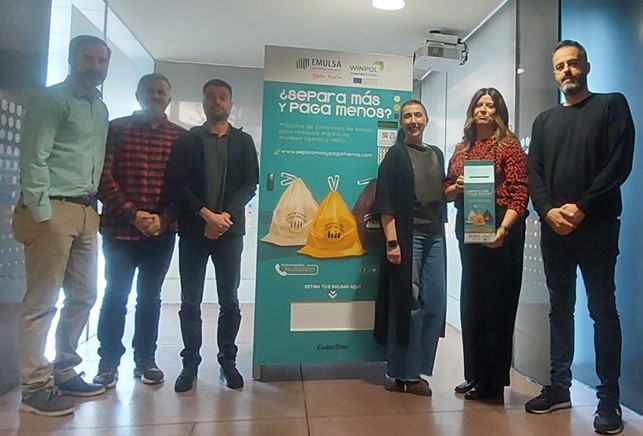
The WINPOL project is coming to its end in exactly a month. EMULSA shares with us a feedback on its participation in the project.
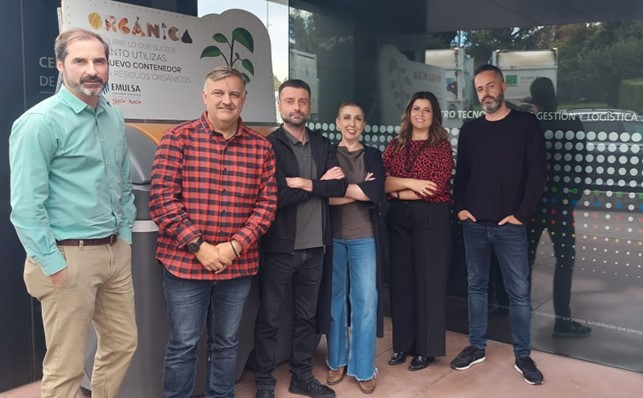
Where do the Action Plans stand two years after the beginning of their implementation? EMULSA answers to our questions for the changes WINPOL brought in Gijón.
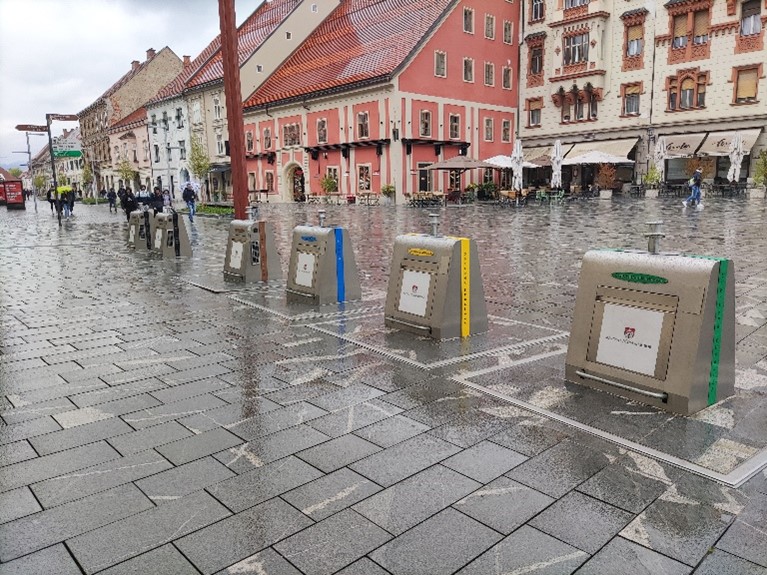
Where do the Action Plans stand two years after the beginning of their implementation? Snaga answers to our questions for the changes in Maribor.
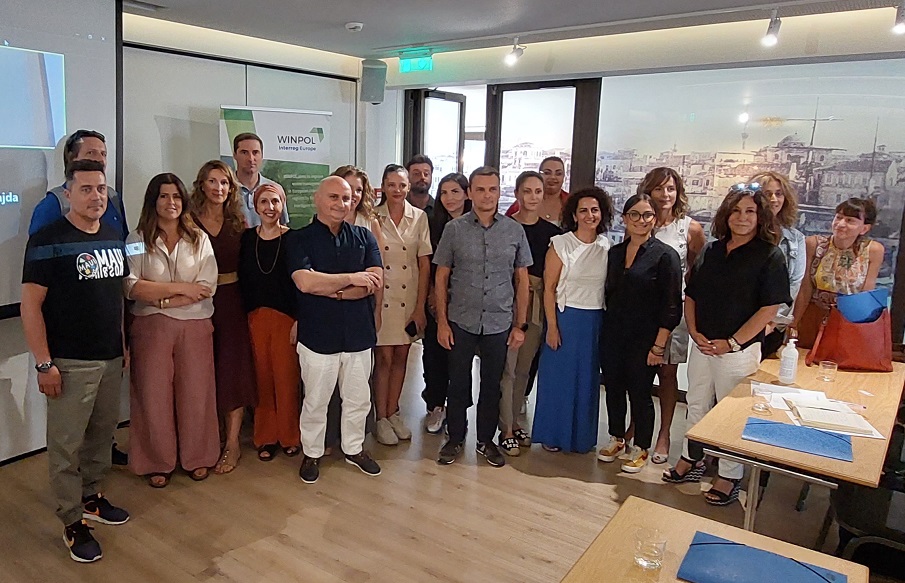
The WINPOL partners met for the last time on 21-22 September to prepare the final months of the project.
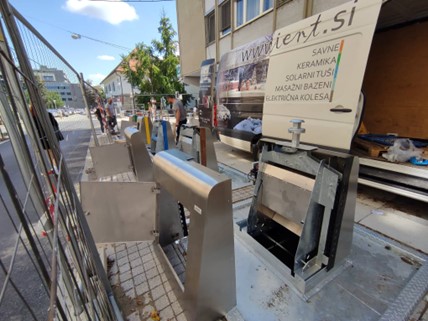
Snaga continues to equipped its centre with underground containers, with the installation of a fourth location.
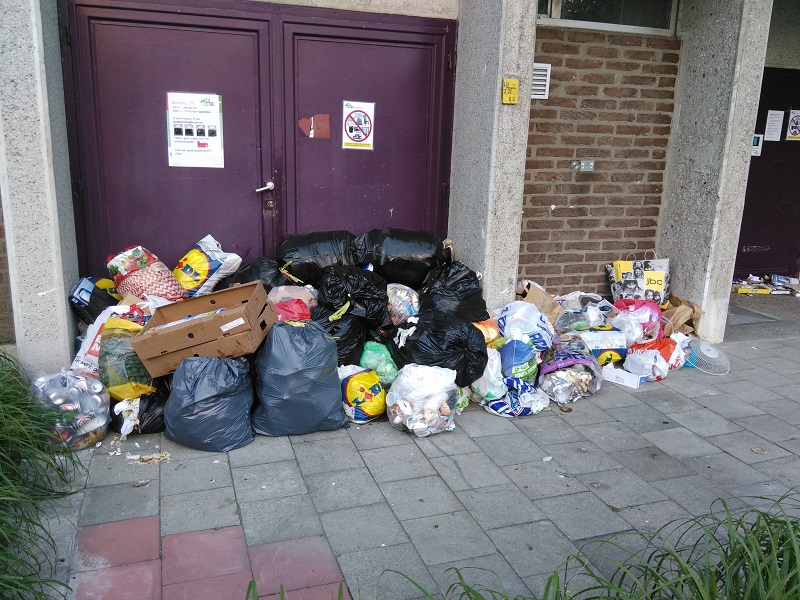
As part of its WINPOL Action Plan, Antwerp made online reporting of illegal dumping in its streets easier.
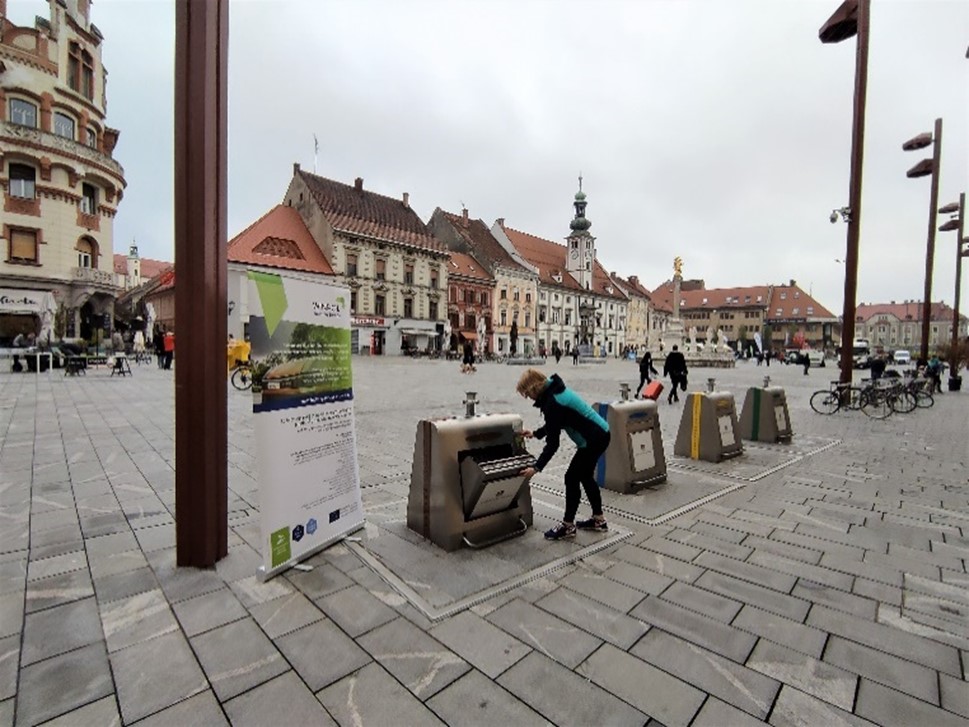
Citizens in Maribor could enjoy various workshops linked to reuse and recycling on the day of Snaga.
Partners of the WINPOL project and invited experts shared their insight and experience on innovation in waste during the final conference of the project.

The WINPOL final conference next 25 May will be webstreamed!